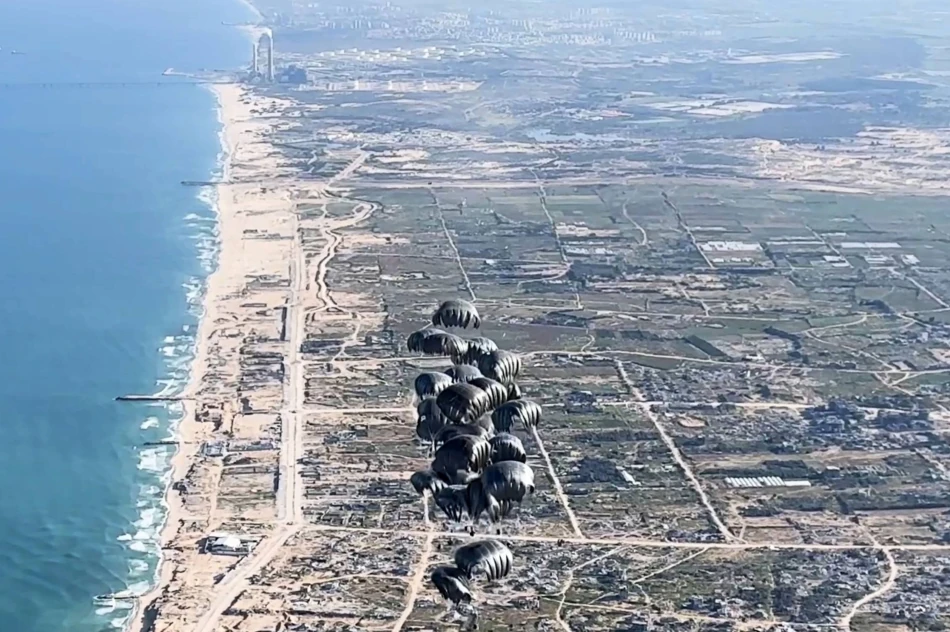
UAE Continues Airlifting Aid, Sends 58 Trucks to Support Gaza
UAE Intensifies Gaza Relief Operations as Humanitarian Crisis Deepens
The United Arab Emirates has escalated its humanitarian response to Gaza's mounting crisis, conducting its 57th consecutive airdrop operation in partnership with Jordan. The mission, part of the broader "Operation Noble Knight 3," highlights how regional powers are stepping up direct aid delivery as traditional ground routes remain severely constrained by ongoing security challenges.
Massive Scale of Relief Efforts
The UAE's "Birds of Goodness" initiative has now delivered approximately 3,775 tons of food and humanitarian supplies using 196 specialized aircraft. This four-day intensive push represents a significant acceleration in aid delivery, with operations specifically targeting Gaza's most damaged and inaccessible areas where ground convoys cannot safely operate.
The scale of this operation reflects the severity of Gaza's humanitarian situation and the UAE's strategic decision to bypass traditional aid corridors. By focusing on aerial delivery, the Emirates is addressing a critical gap in humanitarian logistics that has plagued relief efforts throughout the conflict.
Multi-Pronged Approach to Crisis Response
Ground Operations Continue Despite Challenges
Alongside the airdrops, 58 Emirati trucks entered Gaza through various land crossings, demonstrating the UAE's commitment to maintaining multiple supply channels. These ground operations serve a dual purpose: delivering immediate relief supplies and advancing critical infrastructure projects, including water pipeline extensions from desalination plants.
Infrastructure Focus Sets UAE Apart
The water infrastructure component distinguishes the UAE's approach from purely emergency relief efforts. By extending water pipelines from desalination facilities, the Emirates is investing in medium-term solutions that could provide sustainable improvements to living conditions long after immediate crisis needs are met.
Regional Implications and Strategic Context
The UAE's intensified humanitarian diplomacy reflects broader regional dynamics where Gulf states are increasingly asserting independent foreign policy positions. This approach mirrors successful humanitarian initiatives the UAE has deployed in Yemen, Syria, and other crisis zones, establishing the country as a key regional humanitarian actor.
The partnership with Jordan is particularly significant, as it provides the UAE with crucial logistical support and regional legitimacy for its operations. Jordan's participation also helps ensure that aid delivery mechanisms remain sustainable and politically viable across different regional stakeholders.
Operational Challenges and Innovation
The emphasis on aerial delivery highlights the complex security environment that continues to limit ground-based humanitarian access. The UAE's use of 196 specialized aircraft suggests a sophisticated logistics operation that goes well beyond symbolic gestures, indicating serious investment in precision delivery capabilities.
This operational approach could serve as a model for future humanitarian responses in conflict zones where traditional aid delivery faces similar constraints. The combination of immediate relief with infrastructure development represents a more comprehensive strategy than emergency aid alone.
Most Viewed News

 Sara Khaled
Sara Khaled






